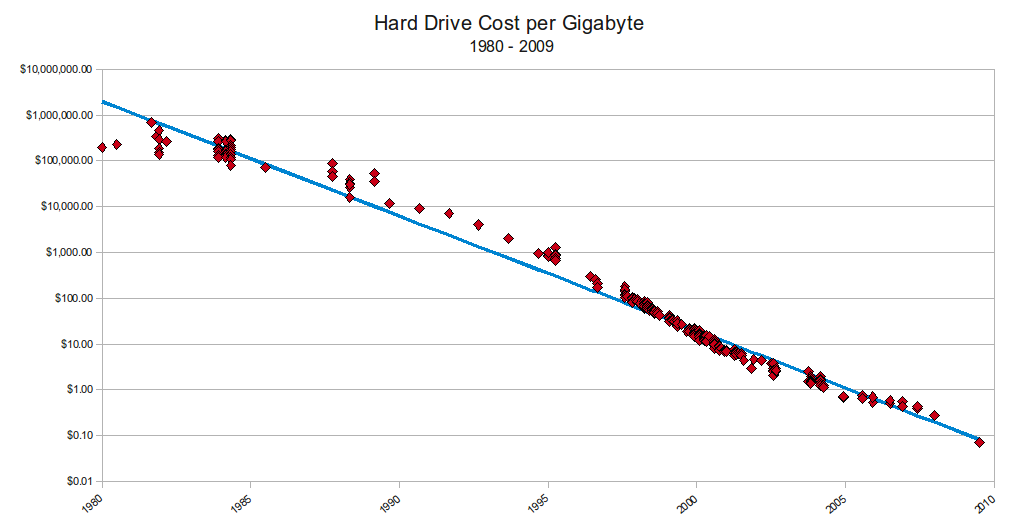How many pros still use mechanical groupsets?
Comments
-
And that graph ^^ is even more extreme when you put it onto a linear axis rather than a non-linear, logarithmic axis such as the one it is displayed on here.0
-
drlodge wrote:There are a lot of plus points with electronic shifting, however there is still one thing that my mechanical group does which the electronic group doesn't - and that's multiple shifting with accuracy. On the mechanical setup I can press the lever/thumb button a certain number of clicks and know the derailleur will change that number of sprockets, but with electronic shifting I have to hold the button down until the required number of gears has shifted and its impossible to know when that's achieved without looking back at the cassette.
Electronic is better on balance, but not on every point. This is Campag BTW.
I can tell for sure how many gears my Di2 will shift by how long I hold the button.
It takes a bit of practice, but I can reliably shift 1, 2, 3 or 4 (or more ) gears at a time.
And in addition, I can see my gear position on the Garmin, so no need to look at the cassette.0 -
Although I imagine that the actual electronic parts of Di2, EPS etc are already much cheaper to produce than the corresponding mechanical parts of mechanical groupsets. But the precision motors, seals etc must cost a lot more and (presumably) at least partially justify the higher RRPs (or are electronic groups just priced artificially high because they are still marketed as a premium product?).Chris Bass wrote:Electronics do get cheaper very quickly, not exactly a fair comparison but:
A hard drive is also a mechanical / electronic hybrid of course, but I assume that the unit cost of a HD hasn't come down that much, just the performance / storage capacity. And there isn't much scope for exponential performance improvement in electronic shifting.
As I said in the first post I'm genuinely on the fence (especially as I haven't ridden electronic yet). But I'll probably wait for Campagnolo wireless..
As far as number of pros running mechanical goes, it's always going to be a strange statistic as only a few will get to have the choice, but it would be interesting to know of any others.0 -
No. It isn't for any of the brands. Difference isn't much, but in all three cases, the electronic groupset is heavier than the equivalent mechanical version AFAIK.Stueys wrote:Added to the ride experience, electronic is lighter and requires less maintenance.
I'd be surprised if you can back that claim with any evidence. Di2 (2009 commercial release, tested earlier by Pro teams) and EPS (2011 release) have been around now for some years, and while the current World Tour teams are all on electronic, it's taken way more than one season. Some of the lower-tier pro teams still aren't fully using it because they don't have the budget to do so.Stueys wrote:Over 90% of the pro peloton (I suspect I'm being conservative but I don't have an exact stat) adopted electronic within a season
Even now, "90% of the pro peloton" is very likely correct for WT level teams, for all riders, but I doubt it's true if you include Pro Conti I'd suggest.
Quoted for posterity. Come back in 5 years and we'll see.Stueys wrote:My prediction is that within five years this won't even be an option that you can debate, it will be all electronic. Open One+ BMC TE29 Seven 622SL On One Scandal Cervelo RS0
Open One+ BMC TE29 Seven 622SL On One Scandal Cervelo RS0 -
Wheelspinner wrote:No. It isn't for any of the brands. Difference isn't much, but in all three cases, the electronic groupset is heavier than the equivalent mechanical version AFAIK.
The Shimano Dura-Ace Di2 9070 electronic groupset with internal battery weighs 2047 grams; the Shimano Dura-Ace 9000 mechanical groupset weighs 2074 grams
(I copied and pasted that from somewhere and verified it). I think it's been the case for a few years now that for Dura Ace at least, the electronic version is the lighter of the 2 DA versions.0 -
dodgy wrote:Wheelspinner wrote:No. It isn't for any of the brands. Difference isn't much, but in all three cases, the electronic groupset is heavier than the equivalent mechanical version AFAIK.
The Shimano Dura-Ace Di2 9070 electronic groupset with internal battery weighs 2047 grams; the Shimano Dura-Ace 9000 mechanical groupset weighs 2074 grams
(I copied and pasted that from somewhere and verified it). I think it's been the case for a few years now that for Dura Ace at least, the electronic version is the lighter of the 2 DA versions.
And arguably, (we love to argue here right?!) the weight is better distributed with Di2, as it is lower and removed from the handlebars.0 -
bernithebiker wrote:dodgy wrote:Wheelspinner wrote:No. It isn't for any of the brands. Difference isn't much, but in all three cases, the electronic groupset is heavier than the equivalent mechanical version AFAIK.
The Shimano Dura-Ace Di2 9070 electronic groupset with internal battery weighs 2047 grams; the Shimano Dura-Ace 9000 mechanical groupset weighs 2074 grams
(I copied and pasted that from somewhere and verified it). I think it's been the case for a few years now that for Dura Ace at least, the electronic version is the lighter of the 2 DA versions.
And arguably, (we love to argue here right?!) the weight is better distributed with Di2, as it is lower and removed from the handlebars.
If you read the Shimano posted data, yes. Trouble is, their own data appears to have been wrong for the mechanical FD, overstating it significantly...
http://www.thebikelane.com.au/2015/06/2015-road-groupset-weights/
Mind you, that doesn't include cable/housing versus wire/junction boxes, which he reckons are "similar"... but for accuracy should be included I think.
Also arguably, sticking a battery right up in the seat post offsets the weight distribution gain a bit, eh? Open One+ BMC TE29 Seven 622SL On One Scandal Cervelo RS0
Open One+ BMC TE29 Seven 622SL On One Scandal Cervelo RS0 -
Pros: Di2 never goes out of index or jumps out of gear due to steel cable stretch and the front derailleur never fails due to getting clogged up with dirt and grime. Perfect gear changes every time.
Cons: After an accident, a mechanical Ultegra 6800 rear derailleur costs £41.99 to replace. While the 6870 Di2 version costs between £122 to £180. On occasion Ive brought the 6800 version to rob the cage from it and replace a bent cage on the 6870 version (its the same cage, just make sure you wind it back so the spring is under tension before fastening the bolt. Took me hours to work this out)."The Prince of Wales is now the King of France" - Calton Kirby0 -
bernithebiker wrote:the weight is better distributed with Di2, as it is lower and removed from the handlebars.
No, Di2 makes the bike imbalanced :twisted: So in effect your saying mechanical is too heavy for you and it hurts your arms when you try turn the handlebars and tires you out quicker, correct ? 0
0



